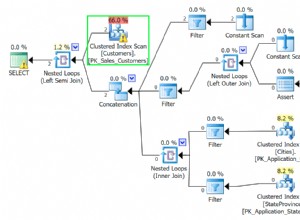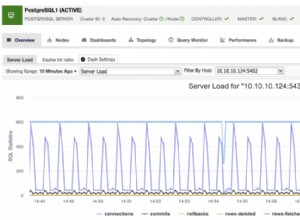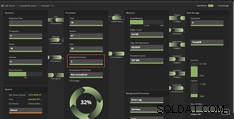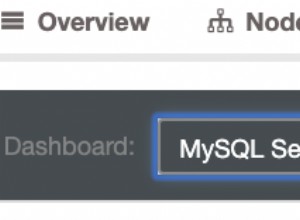tienes que definir un objeto sqldata para mapear esto.
documentación:http://docs.oracle.com /cd/E11882_01/java.112/e16548/oraarr.htm#JJDBC28574
por ejemplo:
SQL> create or replace TYPE tableOneExample AS OBJECT (
2 somethingOne VARCHAR2 (4)
3 ,somethingTwo NUMBER (12)
4 );
5 /
Type created.
SQL> create or replace TYPE outputOneSQLType IS TABLE OF tableOneExample;
2 /
Type created.
SQL>
SQL> create or replace PROCEDURE myprocedure (
2 inputParam IN VARCHAR2,
3 outputOne OUT outputOneSQLType)
4 as
5 begin
6 outputOne := outputOneSQLType(tableOneExample('a', 1), tableOneExample('b', 2));
7 end;
8 /
Procedure created.
ahora definimos la interfaz SQLDATA:
import java.sql.*;
public class TestArr implements SQLData
{
private String sql_type;
public String attrOne;
public int attrTwo;
public TestArr()
{
}
public TestArr (String sql_type, String attrOne, int attrTwo)
{
this.sql_type = sql_type;
this.attrOne = attrOne;
this.attrTwo = attrTwo;
}
// define a get method to return the SQL type of the object
public String getSQLTypeName() throws SQLException
{
return sql_type;
}
// define the required readSQL() method
public void readSQL(SQLInput stream, String typeName)
throws SQLException
{
sql_type = typeName;
attrOne = stream.readString();
attrTwo = stream.readInt();
}
// define the required writeSQL() method
public void writeSQL(SQLOutput stream)
throws SQLException
{
stream.writeString(attrOne);
stream.writeInt(attrTwo);
}
}
asegúrese de que las entradas y el orden de las escrituras/lecturas del flujo sean los mismos que su tipo de oráculo, ya que cualquier incoherencia generará errores de representación interna.
luego, en la clase principal, mapearía esto de la siguiente manera:
CallableStatement stmt = conn.prepareCall("begin myprocedure(?,?); end;");
stmt.setString(1, "foo");
stmt.registerOutParameter(2, java.sql.Types.ARRAY, "OUTPUTONESQLTYPE"); // YOUR ARRAY TYPE (TO MATCH THE API OUTPUT), NOT OBJECT
stmt.execute();
Array arr = stmt.getArray (2);
Map map = conn.getTypeMap();
map.put("TABLEONEEXAMPLE", Class.forName("TestArr")); // YOUR OBJECT TYPE, NOT ARRAY.
Object[] values = (Object[]) arr.getArray();
for (int i=0; i < values.length; i++)
{
TestArr a = (TestArr)values[i];
System.out.println("somethingOne: " + a.attrOne);
System.out.println("somethingTwo: " + a.attrTwo);
}
el resultado bien:
M:\Documents\Sample Code\1>javac TestArr.java
M:\Documents\Sample Code\1>javac ArrayTest.java
Note: ArrayTest.java uses unchecked or unsafe operations.
Note: Recompile with -Xlint:unchecked for details.
M:\Documents\Sample Code\SQLComplexArray>java ArrayTest
Opening Oracle connection...done.
somethingOne: a
somethingTwo: 1
somethingOne: b
somethingTwo: 2




